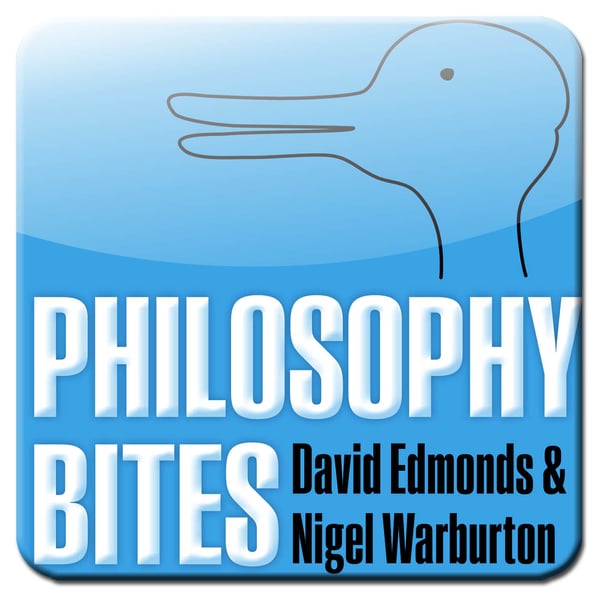Walter Sinnott-Armstrong on Moral Psychology
Philosophy Bites
Nigel Warburton
4.6 • 2K Ratings
🗓️ 2 May 2009
⏱️ 14 minutes
🧾️ Download transcript
Summary
Transcript
Click on a timestamp to play from that location
| 0:00.0 | This is philosophy bites with me David Edmonds and me Nigel Warton. |
| 0:07.0 | Philosophy bites is available at |
| 0:08.5 | www philosophy bites.com |
| 0:11.0 | What happens in the brain when you make a moral judgment? |
| 0:15.0 | There are studies going on in university laboratories around the world |
| 0:19.0 | in which subjects are placed in huge magnets |
| 0:22.0 | and presented with various ethical dilemmas. |
| 0:25.4 | Scans then reveal which bit of the brain has been active as they ponder what should be done. |
| 0:30.9 | These MRI scans are just one of the tools now used in the flourishing area of moral psychology. |
| 0:37.0 | Moral psychology aims to work out why we reach the moral conclusions we reach. |
| 0:42.0 | Potentially, many practical implications are. the moral conclusions we reach. |
| 0:43.0 | Potentially, many practical implications may flow from the discipline. |
| 0:47.8 | Its findings could, for example, help us determine which judgments to rely on, which to reject. |
| 0:53.8 | Some argue they may also clarify |
| 0:55.8 | when a person should be held responsible for his or her actions. |
| 1:00.4 | Walter Sinot Armstrong is a professor of philosophy and legal studies at Dartmouth University. |
| 1:06.0 | Walter Sinot Armstrong, welcome to Philosophy Bides. |
| 1:09.0 | Thanks for having me, I'm glad to be here. |
| 1:11.0 | We're going to focus on moral psychology. Let's begin by just saying what |
| 1:15.1 | moral psychology is. Well it's the study of moral judgments and sometimes moral |
| 1:20.4 | behaviors using the methods of modern psychology and neuroscience. |
| 1:26.0 | So in practice, what does that involve? |
... |
Please login to see the full transcript.
Disclaimer: The podcast and artwork embedded on this page are from Nigel Warburton, and are the property of its owner and not affiliated with or endorsed by Tapesearch.
Generated transcripts are the property of Nigel Warburton and are distributed freely under the Fair Use doctrine. Transcripts generated by Tapesearch are not guaranteed to be accurate.
Copyright © Tapesearch 2025.

